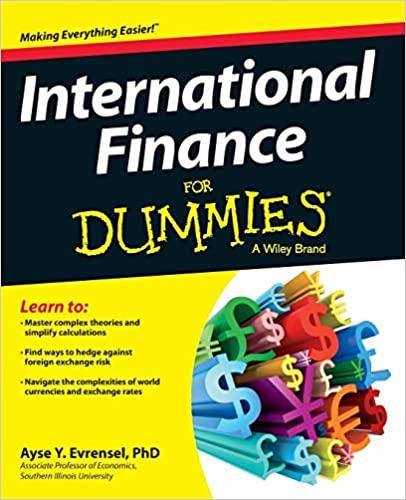Question
Consider the following model of a stock market. There are two groups of traders: rational traders and optimists. There are N rational traders and each
Consider the following model of a stock market. There are two groups of traders: rational traders and optimists. There are N rational traders and each has a demand for the stock of 100 P. Suppose that there are 100 shares of the stock outstanding. There are M optimists and each has a demand of 100 + P.
a) What is the price of the stock as a function of parameters N, M and ?
b) Suppose N = M = 50 and = 20, are the rational traders long or short and by how much?
c) Suppose N = M = 50, = 20, and there are 100 shares outstanding, again. Also, suppose the rational traders cannot short at all for institutional reasons. For example, they might work for mutual funds: most mutual funds do not allow shorting. Calculate the equilibrium price and the positions of the rational traders and the optimists in this scenario.
Step by Step Solution
There are 3 Steps involved in it
Step: 1

Get Instant Access to Expert-Tailored Solutions
See step-by-step solutions with expert insights and AI powered tools for academic success
Step: 2

Step: 3

Ace Your Homework with AI
Get the answers you need in no time with our AI-driven, step-by-step assistance
Get Started


